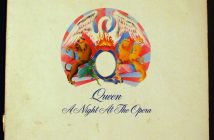This weekend, international singing sensation Ariana Grande took to Twitter to issue a poignant feminist statement.
Grande, who split from rapper Big Sean over seven weeks ago, stated that she was tired of being interviewed about her ex. Her statement, which was published as a screenshot of what seems to be a hurriedly typed text, brings up some important points on misogyny – which is still sadly ever-present in 2015. However, are Grande’s words the start to an inspiring feminist manifesto or simply an unplanned frustrated rant?
In all honesty, before I read the post, I caught sight of the poor structure, exclamation marks and random capitals, and thought it would be incomprehensible to read. But then, after a small struggle in navigating the questionable grammar, I found myself agreeing with most of her argument.
As a lady in the limelight, Ariana is evidently placed in the firing range of sexist behaviour on a regular basis, so it’s understandable that she has suddenly burst out in tweet-form. But, could her approach do more harm than good? Unfortunately, though her argument has valid points the overall feeling of the text comes off more as an aggressive rant, which could arguably reinforce society’s ambivalence towards gender inequality.
Surprisingly, many people today do not recognise the amount of gender discrimination embedded in society. In her statement Grande draws heavily on labelling by expressing that she is sick of being referred to as “Sean’s ex.” Though not intentionally offensive, there is a point to be made about the media’s insistence on coupling Grande with her former boyfriend in the tabloids. Women are not objects of possession and Grande certainly isn’t anyone’s property. She is more than a man’s other half: she is a multi award-winning, chart-topping idol in her own right. So why is it that the media has to question if she is struggling as a single woman? She clearly isn’t and more to the point, the topic is old news.
Your status quo (no matter your gender) should not define you. Who you are dating, sleeping with, or walking down the street with should not be the subject to scrutiny. They are all social norms, so what’s the big deal? It’s a common complaint that reality TV star Kim Kardashian is ‘only’ famous for her leaked sex tape. Well, perhaps if society (yes, all genders) were not so ‘sex-shameful’ towards women, the tape would not have been scandalous enough to attract so much attention. Yet, many adults, who have probably been in some sort of relationship at one stage continue to pass judgement.
We’ve made progress: sex-shaming in the form of revenge porn was made illegal under a new law in England and Wales earlier this year. Yet, gossip spreads easily. The media sees a woman’s private life like a lion spies a juicy piece of steak. Whereas, as Ariana points out, when a man has a similar attitude (or perhaps a more forward one) when speaking on the subject of a relationship, it can go unnoticed or is recognised in a more positive and rewarding light.
Women should not be evaluated by their personal lives. If anything does come to be known (why should it have to be hidden?) and a person feels the need to overtly judge, double standards will never disappear. Grande brings up the ‘slut v. stud’ attitude that puts genders in a not-so-metaphorical ‘game.’ This emphasises that women are no more than prizes to be won or discarded, whether in a non-romantic situation or not.
Ariana is an artist, above all. She makes intelligent points: branding a woman by her male partner or her body parts is vulgar and I’m saying this while listening to T-Pain’s ‘Up Down.’ There’s a limit to such language and, as a fan of RnB and rap music, I see the appeal and accept it. Some of the sayings which Grande lists, along with many more, are all playful in theory. They can be light-hearted and part of everyday conversation across all genders but when they are used maliciously (e.g. to shame) it crosses a line. A person’s success is immeasurable when looking at their personal, sexual or dating life.
As I come to the end of this article, I can see how Grande’s own thoughts spiralled. Nevertheless, her original tweet garnered nearly 80,000 retweets and almost 100,000 favourites. Thousands have offered their support and praised her as an inspiration. And had Grande taken the time to make her statement more concise and balanced, it would have been all the better.
With this essay, hopefully Grande now has one less problem to deal with:




